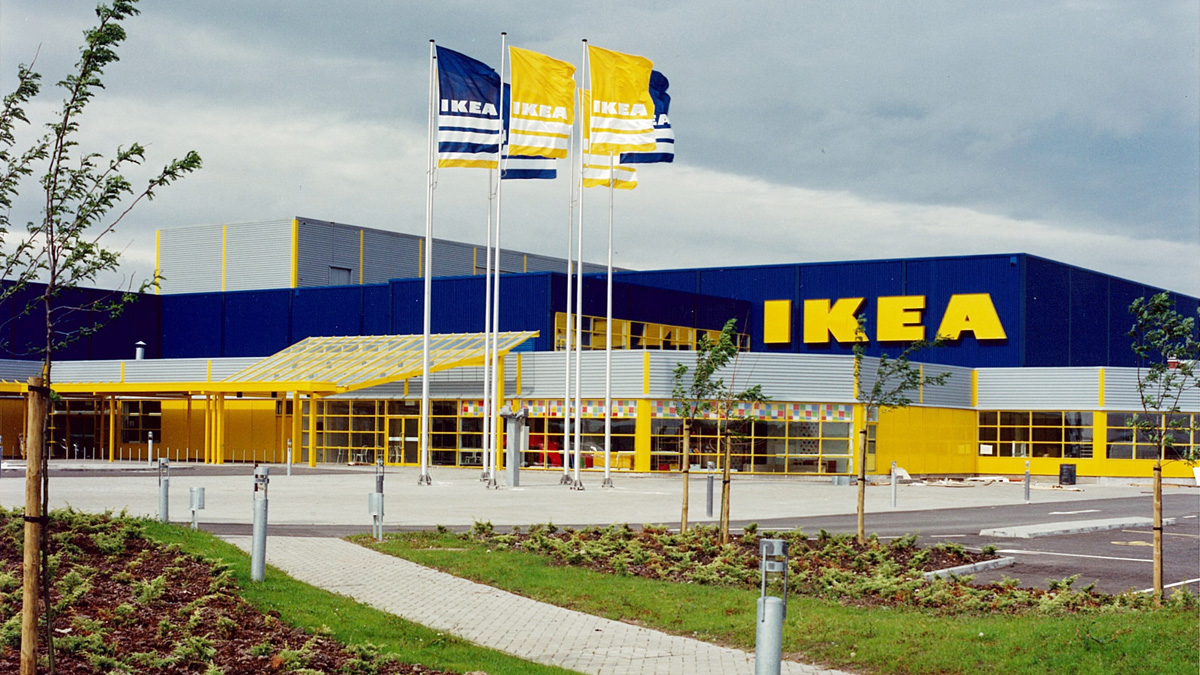The leader behind soon-to-be London-listed Shein
Plus, Britain's bizarre business names, Raspberry Pi listing update, shareholder revolts over pay and election coverage

This article is an online version of our Off to Lunch newsletter. Sign up to receive it straight to your inbox here.
Could the UK be set to benefit from the trade war between the US and China? Sky News reported over the weekend that Shein could file its IPO prospectus to list on the London Stock Exchange as early as this week. The £50bn rumoured listing could be an encouraging step forward for the under-fire exchange, but who is the leader behind the Chinese-founded, Singapore-headquartered fast fashion force?
Before we go into it, the company’s name is not said “shine” – it’s “she in”. It was founded in 2012 by Xu Yangtian, also known as Sky Xu. Despite being the company’s CEO, he is fiercely private and rarely speaks publicly.
“It’s a cultural thing,” Shein’s Singapore GM Leonard Lin told Drapers. “In Asia, many businesses choose to keep a low profile. As long as you’re doing well, there may not be an imperative to come out and be so active. It’s just… tradition.”
There are differing reports of Xu’s upbringing, but Chinese media outlets say he was an average student from a poor background. He cut his teeth running an online business, Nanjing Dianwei Information Technology, that sold items from mobile phones to teapots. Xu started the business with Wang Xiaohu and Li Peng, using his keen eye for detail and knowledge of SEO to help the business expand.
After adapting its product range to include clothing, the company was selling between 100 and 200 items a day, with a workforce of around 20 people. “We were going for low margins and large quantities,” Li said in an interview with Wired.

The same article gives an insight into Xu’s mindset:
Xu worked long hours, often staying at the office well after the others had gone home. “He strongly wished to succeed,” Li said. “It would be 10 pm, and he would be nagging me and buying me late-night street food and asking more.” Li gave Xu advice over beer and meals – boiled and salted duck, vermicelli soup – observing that Xu listened carefully and learned fast.
Shein has been heavily criticised for its environmental impact, however the asset-light, low-batch ordering method that was used at Nanjing has been honed and scaled and is key to Shein’s success today. The company says it only produces between 50 and 100 pieces of each new product to avoid waste.
The same article details Li’s account of what happened next.
One day, after they had been in business for more than a year, Wang showed up at the office and found Xu missing. He noticed that some company passwords had been changed and he became concerned. As Wang describes it, he called and texted Xu and got no response. Xu was gone. (A Shein spokesperson said that Xu and Wang “separated peacefully”.)
Xu registered SheInside in March 2011. It was the predecessor to the company we know today, which officially became Shein in 2015. Xu’s eye for detail and expertise in SEO have made the company into a juggernaut. Shein has a sophisticated algorithm that trawls the internet to find the fashion items trending, along with what people are responding to on competitors’ websites.
This data is scrutinised and used to make additional tailored items, helping them stay on trend and tempt fashion-savvy buyers. The Wall Street Journal has a deep dive into these methods, if you’d like to find out more.
While Xu remains in the shadows, the company’s investors include private equity firm General Atlantic, the Emirati sovereign wealth fund Mubadala and HongShan (formerly Sequoia Capital China). Shein’s public faces are former SoftBank chief operating officer Marcelo Claure and former Bear Stearns exec Donald Tang, who now serves as executive chairman.
We’ll get a steady stream of news about the potential of a Shein IPO in the coming weeks, but it’s not clear that we’ll get much more information into the character of its CEO. One thing is for sure however, he has seismic ambitions. “He has just got started,” a person close to him told The FT. “To him, the world is all ahead of him. A vast market is yet to be conquered.”
Business in brief
Everything you need to know
1. The Labour party has doubled down on its pledge to reform the existing apprenticeship levy. The shadow education secretary Bridget Phillipson has fronted the campaign to launch the new growth and skills levy that would give businesses “greater flexibility to invest in training courses that meet their skills needs, turbocharging investment in skills for the future”. Read more here.
2. Raspberry Pi is set to have a valuation of £540m when it lists on the LSE later this month. Shares are likely to be priced between £2.60 and £2.80 and the chipmaker will likely raise £157m. You can read more here.
3. Santander has revealed details of a major cyber breach. The ShinyHunters hacking group claimed responsibility for the cyber attack and said it had stolen the personal details of millions of people. However, the bank says that “UK customer data was not affected or lost in the hack”. You can read more here.
4. Centrica, the owner of British Gas, is potentially facing a shareholder revolt over the £8.2m pay packet of its chief executive. The showdown between investors and the board will happen at Wednesday’s AGM. Read more here.
5. New research from the government procurement data provider Tussell shows that the value of government contracts awarded to the private sector via a pre-approved shortlist without full competition has tripled in the past four years. The Federation of Small Business says that small companies “are effectively blocked from competing for contracts”. You can read the full story here.
Business Quotes
Inspiration from leaders
“Leaders must be close enough to relate to others, but far enough ahead to motivate them.”
– John C. Maxwell
And finally…
What’s really in a name? Last week, Surelock Homes took the title of Britain’s Best Small Business Name 2024. The Hastings-based locksmith won the award, given out by Simply Business, beating the likes of street food company Tikka Chance On Me and unisex barber Barber Streisand.
Today, The Times has revealed that Companies House denied almost 800 applications last year because they might offend a “reasonable person”. These included Dog Tits Bakery, THE PEOPLE’S DANKEST CANNABIS COMPANY and Liquid Crack.



